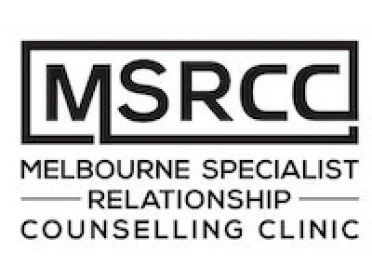
Infidelity can really shake a relationship, causing deep emotional pain and breaking the trust that you and your partner have built. It’s a difficult and painful experience, but understanding what cheating is, recognising the signs, and knowing what steps to take can help you navigate through this challenging time.
What Is Cheating?
Cheating isn’t just about having a physical affair. It’s about breaking the trust and crossing the boundaries that you and your partner have agreed upon. While physical cheating is often what comes to mind, infidelity can take many different forms, each causing harm in its own way. Understanding what counts as cheating in your relationship is crucial for keeping that mutual trust and respect alive.
Signs Your Partner Might Be Cheating
Suspecting your partner of cheating can be incredibly upsetting. While not every change in behaviour means they’re being unfaithful, there are certain signs that might suggest something is wrong:
- Emotional Distance: Has your partner become distant, avoiding meaningful conversations and seeming preoccupied? This could be a sign.
- Changes in Routine: If your partner suddenly starts working late or has unexplained absences, it might be worth paying attention.
- Increased Secrecy: Being secretive about their phone, computer, or whereabouts can be a red flag.
- Lack of Intimacy: A noticeable drop in physical affection or sexual activity can indicate that something’s off.
- Defensive Behaviour: Does your partner get very defensive when you ask simple questions about their day or where they’ve been? That could be a sign of guilt.
- Unexplained Expenses: Finding strange charges on your bank statements or credit cards might mean they’re hiding something.
Remember, these signs don’t always mean your partner is cheating, but they do suggest that something might be wrong. It’s important to approach the situation with care and seek clarity.
The Many Faces of Infidelity
Cheating isn’t just about having sex with someone else. Infidelity can take many forms, and each one can be just as damaging to a relationship. Here are ten types of infidelity that can harm your relationship:
- Physical Infidelity: Engaging in sexual activities with someone other than your partner.
- Emotional Infidelity: Developing a deep emotional connection with someone outside your relationship.
- Cyber Infidelity: Having intimate or sexual conversations online.
- Financial Infidelity: Hiding financial transactions or keeping secret bank accounts.
- Micro-Cheating: Small actions like flirting or sending suggestive messages that suggest interest in someone else.
- Visual Infidelity: Consuming pornographic material without your partner’s knowledge or consent.
- Text Infidelity: Engaging in suggestive or intimate text conversations with someone else.
- Romantic Infidelity: Developing romantic feelings for another person.
- Sexual Fantasies: Constantly fantasising about someone else, which affects your intimacy with your partner.
- Compulsive Cheating: Repeatedly engaging in infidelity without regard for the impact on your relationship.
Recognising these types of infidelity can help you understand the different behaviours that might be hurting your relationship.
What to Do After Discovering Infidelity
Finding out that your partner has cheated is overwhelming. You might be feeling a whole range of emotions—shock, anger, sadness, confusion—and not know where to turn next. Here are some steps you can take to start healing:
- Allow Yourself to Feel: It’s okay to feel hurt, angry, confused, and sad. These emotions are normal and a natural part of the healing process. Give yourself permission to feel everything that comes up.
- Seek Professional Help: A therapist can be an invaluable support during this time. They can help you process your emotions, understand what’s happened, and decide what steps to take next. Whether you choose individual or couples counselling, having a professional guide you through this can make a big difference. They can also help you with communication strategies, rebuilding trust, or even deciding if moving on is the best choice for you.
- Communicate Openly: If you decide to try to work through the infidelity, open and honest communication is key. It’s important to talk about why the cheating happened and what needs to change. This can help rebuild trust and create a deeper understanding between you and your partner.
- Establish Boundaries: Moving forward, it’s essential to set clear boundaries and expectations to prevent further issues. Agreeing on what’s acceptable and what isn’t can help rebuild the trust that’s been broken.
- Focus on Self-Care: This is a tough time, and it’s important to take care of yourself. Engage in activities that bring you joy and help you relax. This could be anything from exercise and meditation to spending time in nature or pursuing hobbies. Remember, taking care of yourself isn’t selfish—it’s necessary for your healing.
- Consider the Future: Think about what you want for your future. Whether you choose to stay and work on the relationship or decide it’s best to move on, make sure it’s a decision that puts your happiness and mental health first.
Moving Towards Healing
Healing from infidelity is a journey. It involves focusing on your well-being, seeking support from loved ones or professionals, and communicating openly with your partner. Therapy can be a valuable tool, offering guidance as you navigate the complex emotions and decisions ahead. Whether you choose to rebuild trust or start fresh, remember that healing takes time. Be patient with yourself, celebrate the small victories, and don’t hesitate to lean on your support system. With time, resilience, and determination, you can come out of this stronger and ready to build a brighter future.
Taking the first step toward healing is often the hardest. If you’re ready, reach out to a professional. Visit MSRCC to book your consultation or to discover more about our services.
Disclaimer: This blog post is for informational purposes only and is not a substitute for professional advice. If you are struggling with infidelity, please seek support from a qualified therapist or counsellor.


